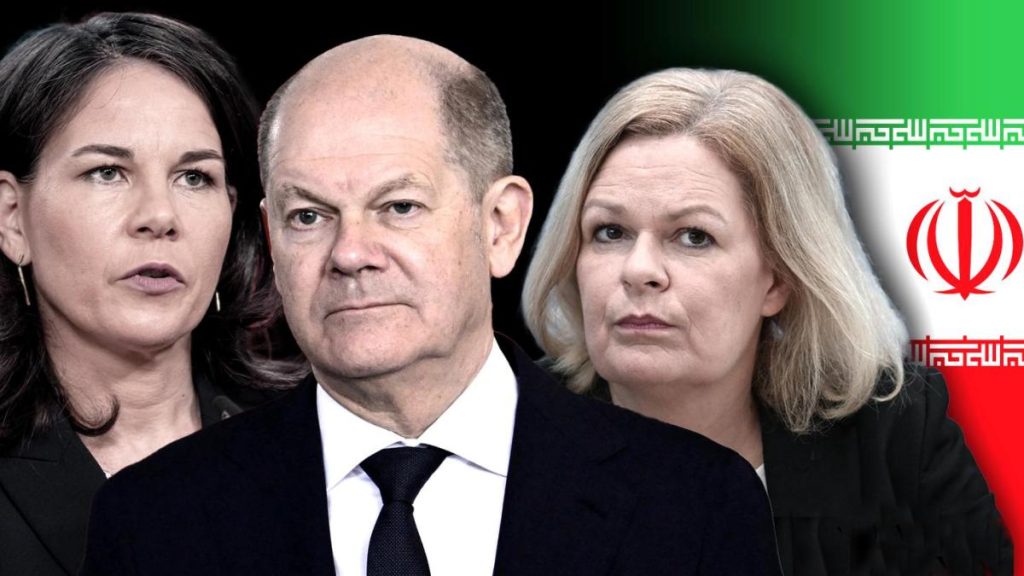German Chancellor Olaf Scholz (SPD) and President Frank-Walter Steinmeier have condemned the Iranian regime’s attack on Israel, while also calling for de-escalation and restraint. Steinmeier assured Israeli President Izchak Herzog of the solidarity of the Federal Republic on Sunday morning, expressing hope that widespread escalation could be avoided. Meanwhile, Chancellor Scholz, who is on a delegation trip to China, referred to the attack as a “serious escalation” that is not acceptable, understandable, or tolerable in any way. He emphasized that Israel has the right to defend itself and pledged to do everything possible to prevent further escalation.
During his trip to China, Scholz plans to monitor the situation in the Middle East closely and exchange information with members of his government, including Foreign Minister Annalena Baerbock (Greens), Defense Minister Boris Pistorius (SPD), and Interior Minister Nancy Faeser (SPD). Despite being briefed on the escalation during his flight, Scholz is committed to attending a video conference with the G-7 countries. He also canceled a planned boat ride on the Yangtze River and will meet with Chinese President Xi Jinping and Prime Minister Li Qiang in Beijing. The importance of these talks in addressing the need for stability in the region is crucial given the unprecedented nature of the Iran’s attack on Israel.
Terrorism expert Nicolas Stockhammer predicts further escalation following Iran’s drone and missile attack on Israel, noting that Israel is unlikely to remain passive. The FDP faction shares concerns over the possibility of a widespread war in the Middle East, highlighting the grave consequences of the Iranian attack on Israel. The emphasis now should be on de-escalation, diplomacy, reason, and maintaining peace. Germany stands firmly with Israel, both politically and diplomatically, and is willing to provide military support if necessary. Meanwhile, Iran has summoned the German ambassador along with those from the UK and France, citing the countries’ “irresponsible positions” regarding the Iranian attack on Israel.
The AfD hinted at Israel’s complicity in the conflict, emphasizing the need for a denuclearized, diplomatically resolved solution that respects international law. The party’s concern is the potential for ongoing violence, which could have dire consequences for the civilian population. Germany’s CDU/CSU parliamentary group is pushing for the terrorist designation of the Islamic Revolutionary Guard Corps and sanctions against the Iranian regime. They believe the Islamic Center Hamburg, including the Blue Mosque, serves as a propaganda hub for the Iranian regime and should be shut down immediately, a move that has been urged for over a year.
The Israeli Cabinet is convening to discuss a response to Iran’s drone and missile attack, with fears growing about the potential for a broader conflict in the region. The role of the Iranian regime in orchestrating terrorism is a cause for concern, with calls for a crackdown on the Islamic Center in Hamburg intensifying. The Green Party and the Left echoed demands for its closure, citing the need to combat extremist ideologies and the influence of the Iranian regime in Germany. There is a consensus that legal measures must be taken to curb these activities and protect human rights. Ultimately, the focus is on finding a peaceful resolution to the conflict and supporting freedom movements in Iran.















